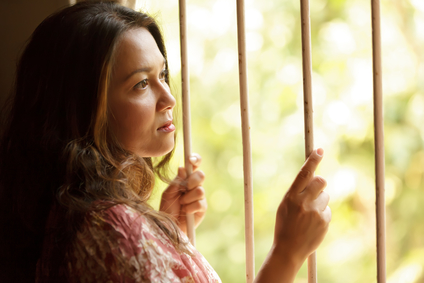High school is hard work. Between homework, sports, clubs, band, and parents, teens have a lot of pressure to perform and achieve. For high schoolers, the stress and anxiety of school can feel overwhelming. But it doesn’t have to be. Here are some tips to help modern teenagers get through your classes and cope with stress.
Does Feeling Stress Mean I Have Anxiety?
Everyone feels stress and anxiety sometimes. When big projects like term papers come due, exams are looming, or you have a fight with a friend, it is natural to worry about what will happen next. Not everyone who feels stress has an anxiety disorder. Anxiety can be a perfectly healthy emotion, as long as it fades after the situation passes. But if it sticks around, or seems to get worse in response to specific events, you might want to talk to someone who knows about mood and anxiety disorders.
Get Help Dealing with High School Stress and Anxiety
Talk to a psychotherapist today about how to cope with stress and anxiety at school.
Tips for Dealing with High School Stress
Being a high school student means you aren’t in control of a lot of things that happen to you. Your parents, teachers, and other school officials often have the final say. Here are some things you can do as a teenager to help deal with stress.
1. Keep a Journal or Diary
When a specific thought or worry keeps running through your head, it can help to put that thought down on paper or in a digital note. Having someplace to work through what’s troubling you can help reduce anxiety. Plus, if you record what you’re grateful for each day, it can be a tool to remind you that things aren’t all bad when the stress starts to pile up.
2. Make Time for Downtime Every Day
Your schedule shouldn’t be all work, even while you are in high school. Studies say that kids, teens, and adults need time to play, relax, and spend time with family and friends. Talk to your parents about setting aside 30 minutes or an hour each day to just relax and recharge.
3. Practice Breathing
Sometimes when your anxious, it can feel like you’re get enough air. That can make anxiety feel worse than it already is. If you feel a spike of stress or panic, try a breathing exercise to slow down your heart rate and keep you calm.
4. Plan Out Your Day
Another strategy is to take 5 minutes each morning to think about the 3 most important things you want to accomplish that day. This can help you stay focused on what’s important. That way you won’t feel stressed out trying to finish something at the last minute.
5. Break Big Projects into Small Tasks
Finishing a group project or preparing for a final exam can cause a lot of stress because it’s a big task with lots of pieces. But you don’t have to tackle the whole project at once. Think of it like a pie. Cut yourself a piece, maybe just studying one topic or outlining one part of an essay, and work your way through that piece, before going back for seconds.
6. Move Your Body
The same chemicals in your body control anxiety and physical activity. Adrenaline can make you feel nervous and make it hard to sit still and focus. If you’ve heard of “fight, flight, or freeze,” that’s adrenaline too. If you’re feeling anxious, find a way to exercise or move your body. The movement will help you burn off that adrenaline and move past your anxiety.
7. Talk to Somebody
One of the best ways to relieve stress and anxiety is to talk to someone you trust. This can be your friends, but remember that they’re probably stressed out too. It may be more effective to talk to an adult about the stress you are feeling because of high school. This doesn’t have to be your parents. It could be a coach, teacher, school counselor, religious leader, or someone in your neighborhood. You can also ask your parents to connect you with a psychotherapist. This is someone who has special training in dealing with stress and anxiety. They can teach you even more coping tips and can help you work through whatever is causing you stress.
David Stanislaw is a psychotherapist with over 30 years of experience. He helps children, teens and adults identify and address anxiety disorders and other psychiatric issues. Contact David Stanislaw to get help for your teen today.


 Common Treatments for Depression
Common Treatments for Depression Are Childhood Family Patterns Affecting Your Marriage?
Are Childhood Family Patterns Affecting Your Marriage? 7 Ways Therapy Can Make You a Better Parent
7 Ways Therapy Can Make You a Better Parent